On 28 July 1870 Napoleon III arrived in Metz to assume command of the newly titled Army of the Rhine (202,448 men) following France's declaration of war against Prussia.
#kaiserreich #History #OTD
#kaiserreich #History #OTD
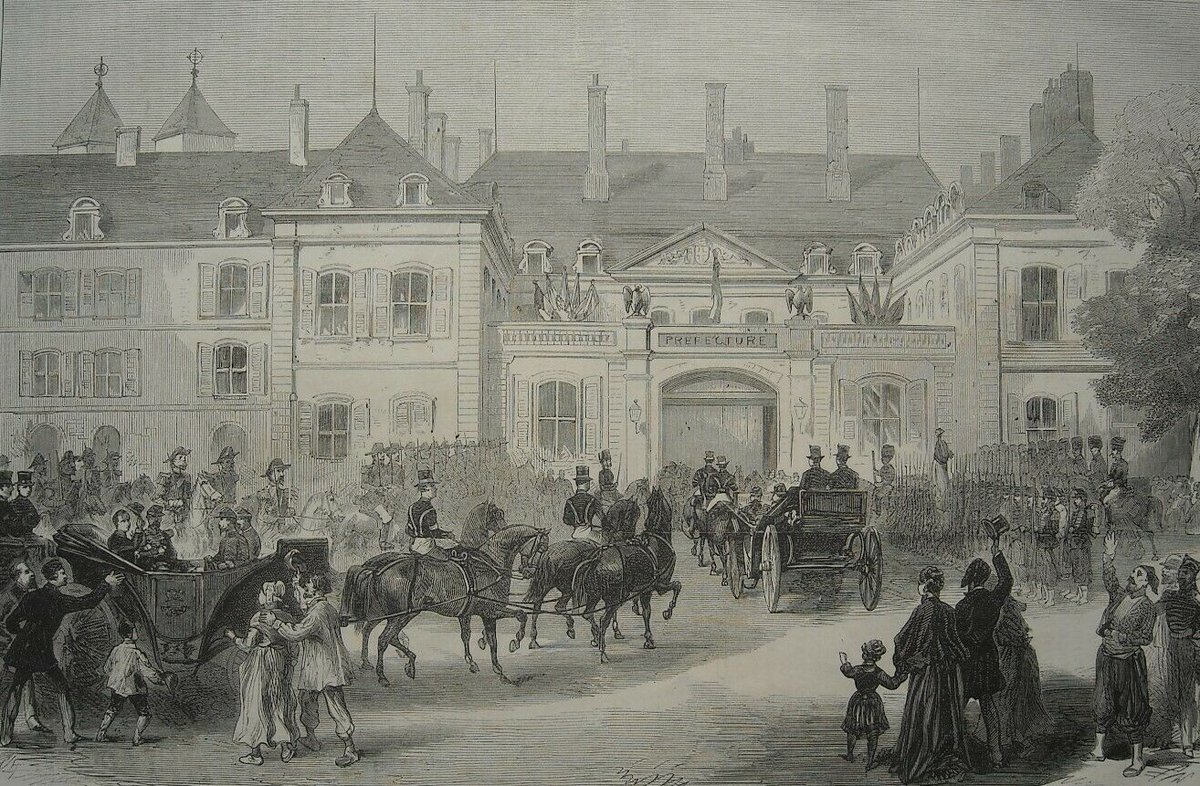
On 2 August 1870, the French II and III Army Corps crossed the Saar frontier in the first major clash with Prussia. At Saarbrücken, 40th Prussian Regt of the 16th Infantry Division was hopelessly outgunned and outnumbered had to withdraw from the city. #history #kaiserreich 
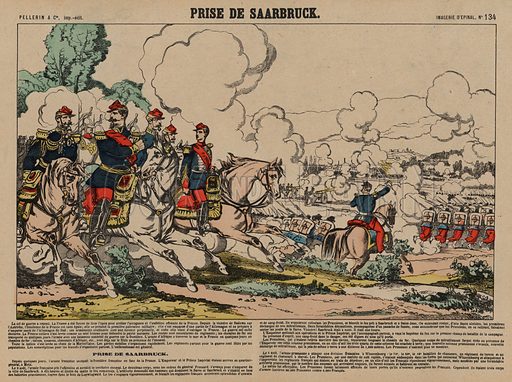
On 4 August 1870, the German 3rd Army (composed of Prussia, Bavaria, Baden, Württemberg troops) attacked the French 2nd Division at Wissembourg. Although overwhelmed and defeated, General Abel Douay's troops put up a spirited defence. #OTD 

Crown Prince Frederick Wilhelm paying his respects to the fallen French General Abel Douay, by Anton von Werner (1888). Prussian General Hugo von Kirchbach commanding Vth Corps is seen on the left. The Crown Prince was highly appreciative of the 2nd Division's tenacity. #OTD 
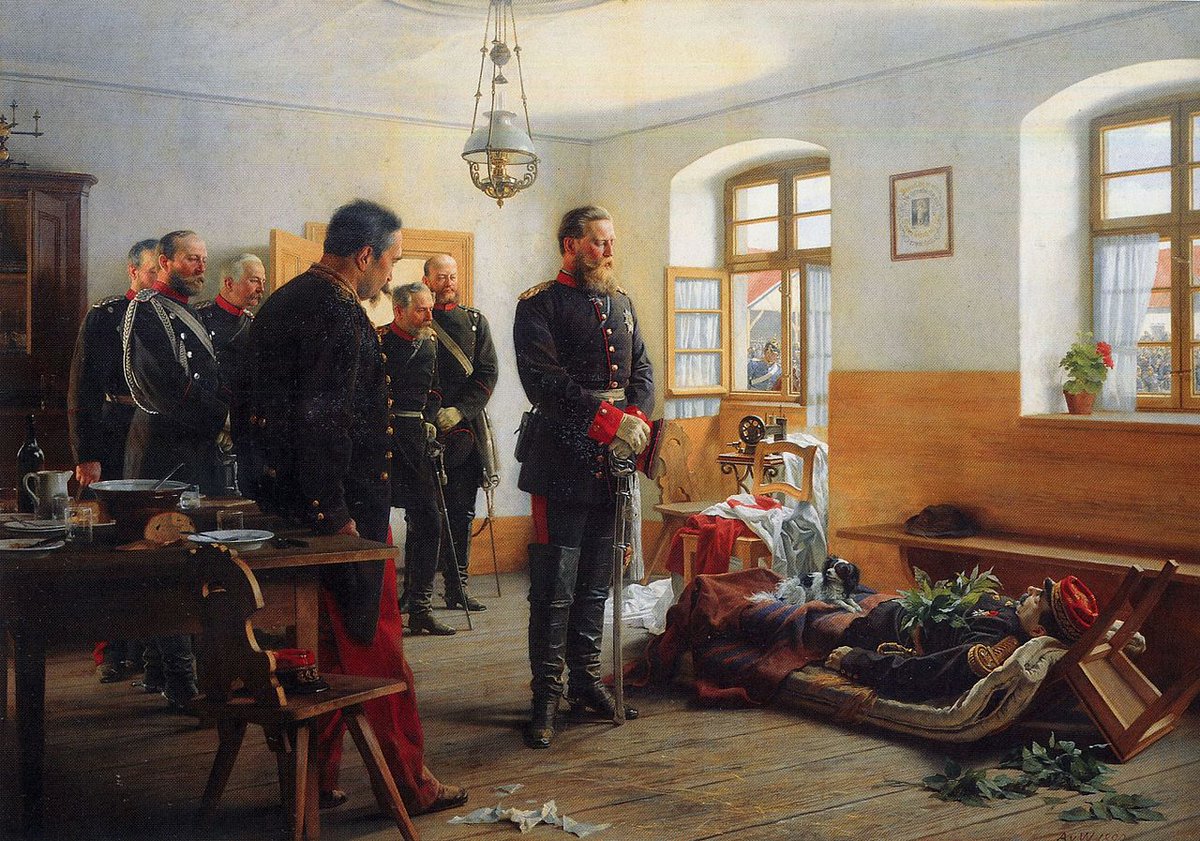
On 5/6 August 1970 at Spicheren, Fossard's II French Corps stalled an ill-prepared attack by von Steinmetz's German 1st Army. The 2nd Army under Prince Friedrich Karl of Prussia came to the aid of their compatriots, forcing a French retreat towards Moselle and Verdun. #OTD 
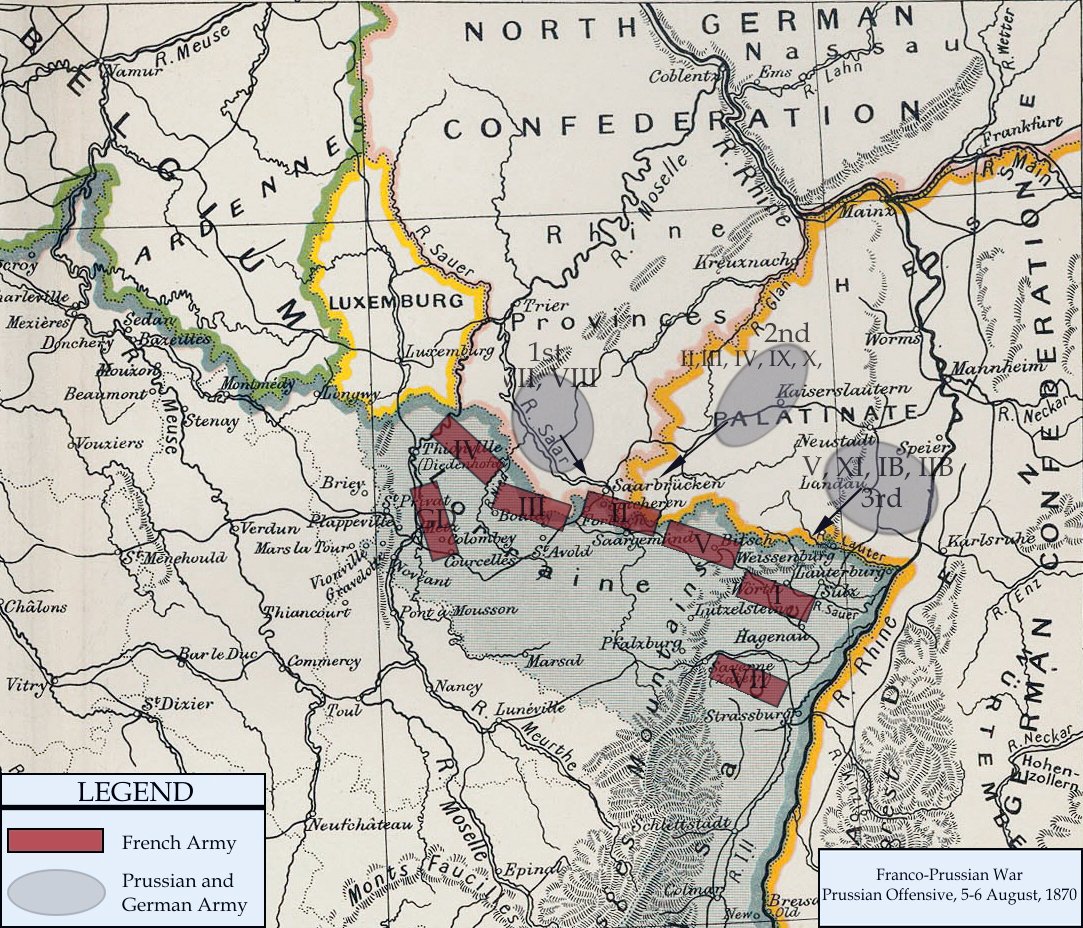
Troops of the Prussian Guard Corps (German 3rd Army) assault Rothberg Hill at the Battle of Spicheren (H.D. Falkenstein 1872) 

#OTD 1870, the German 3rd Army led by Crown Prince Frederick and his chief of staff, Graf von Blumenthal, defeated the French under Marshal MacMahon near Wörth (Reischshoffen) in Alsace. MacMahon's force's suffered 40% casualties in the battle. 

Jean Baptiste Edouard Detaille's painting of the massacre by the Prussian XI Corps of 700 French 9th Cuirassiers under General Michel trapped in Morsbronn-les-Bains during the closing stages of battle of Wörth. #OTD 
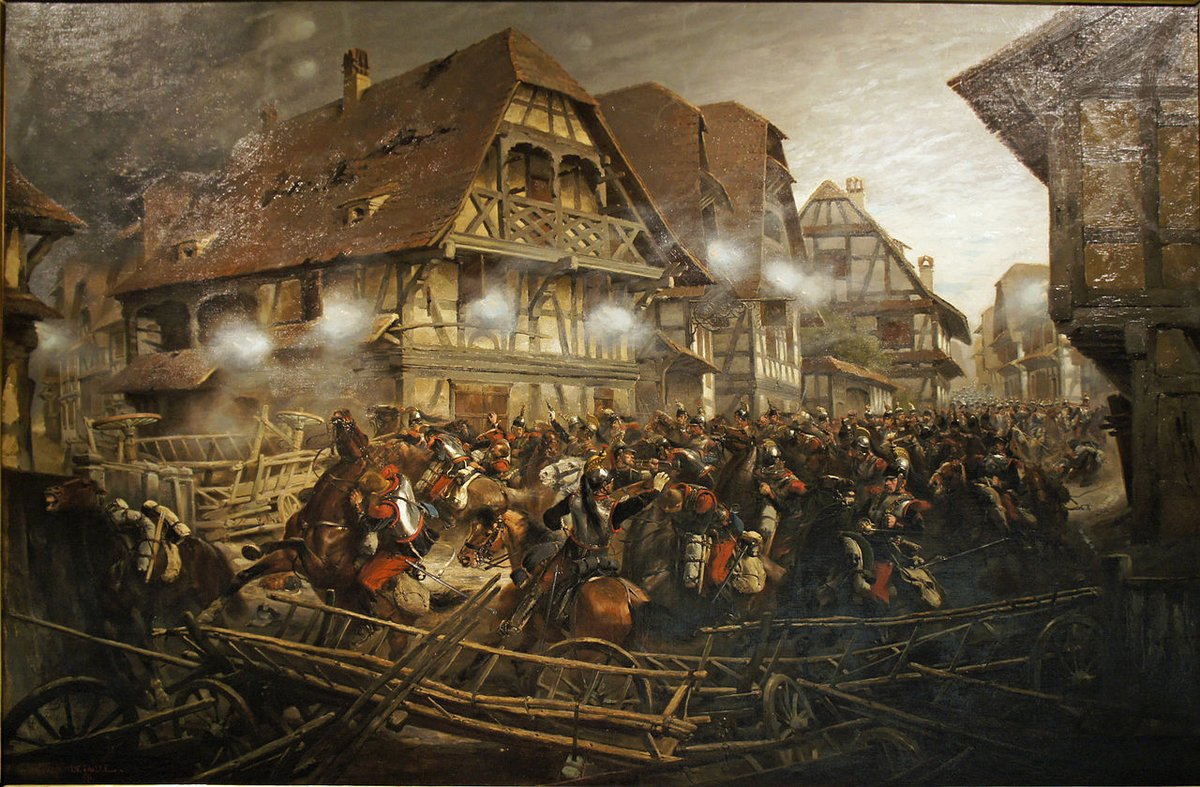
• • •
Missing some Tweet in this thread? You can try to
force a refresh













